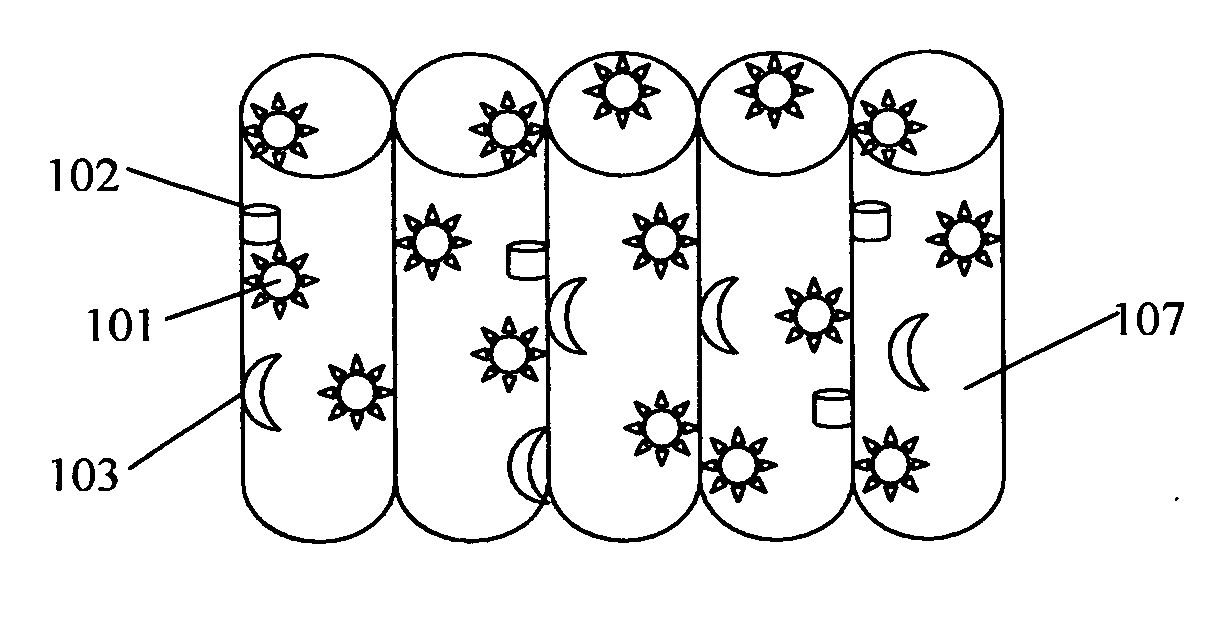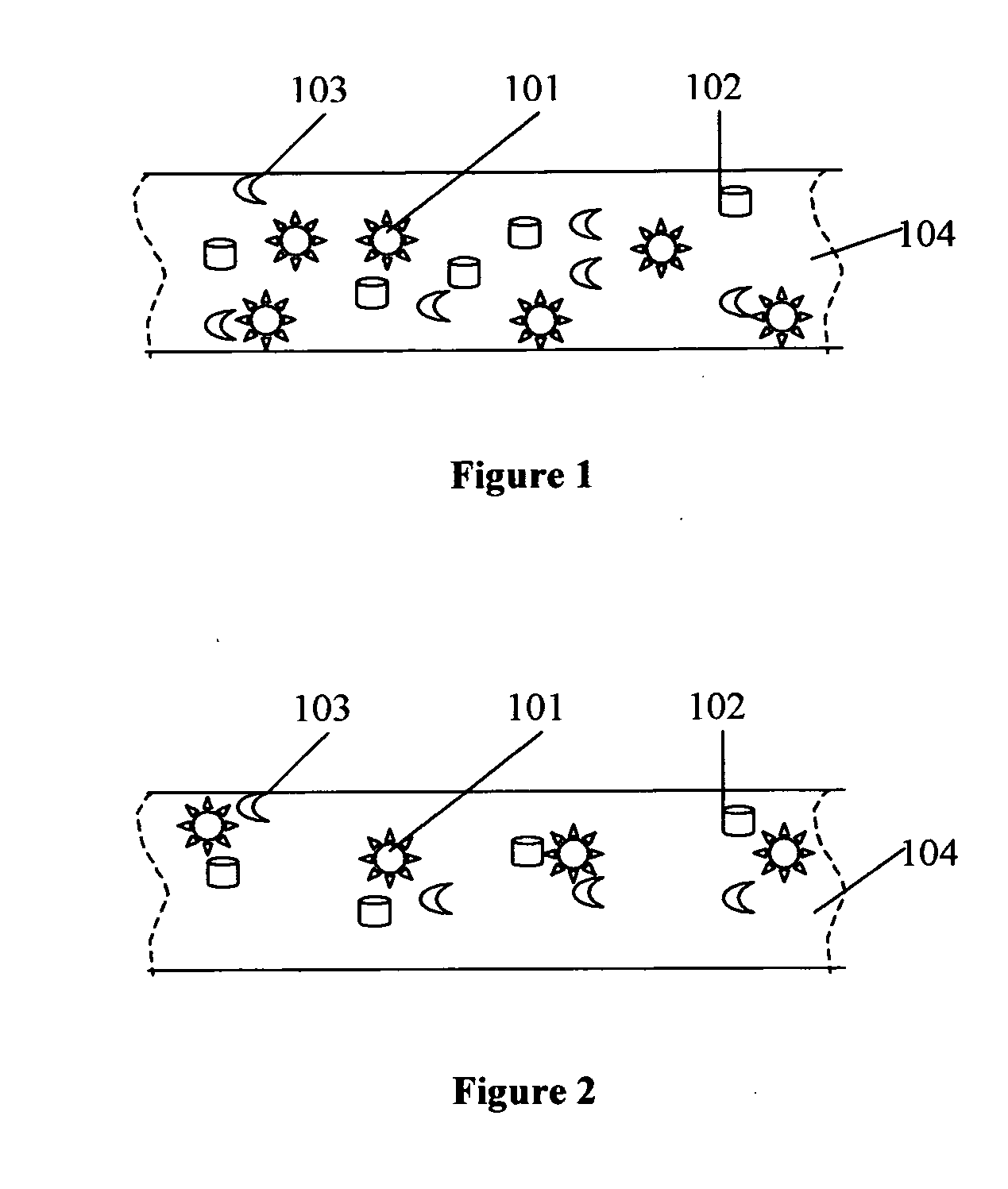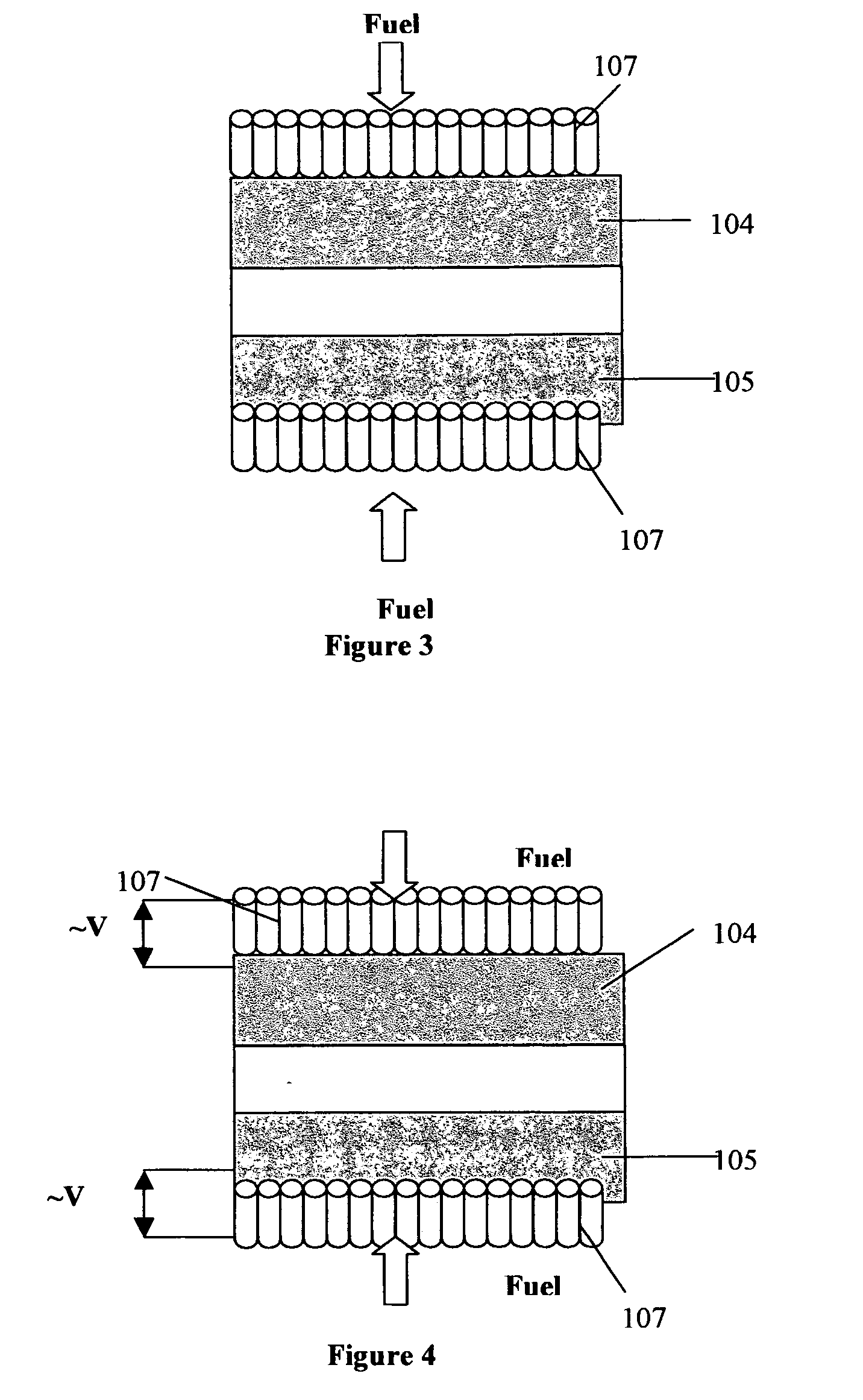Plasmonic fuel cell
a fuel cell and plasmonic technology, applied in the direction of cell components, sustainable manufacturing/processing, instruments, etc., can solve the problems of not solving the problems of fuel cell technology, limited catalytic reactivity, and difficult to develop a material with a significantly higher catalytic reactivity than those currently utilized, so as to improve the “burning” of fuels, improve the efficiency of electrochemical reactions, and improve the effect of generation/diffusion
- Summary
- Abstract
- Description
- Claims
- Application Information
AI Technical Summary
Benefits of technology
Problems solved by technology
Method used
Image
Examples
Embodiment Construction
1. Abbreviations.
[0026] SPR—surface plasmon resonance [0027] LED—light emitting diode, which includes an inorganic, organic and supper luminescent diodes [0028] Electron-Hole pair effect—the effect where energy creates electron and hole pairs in the material, which lead to electron and hole recombination associated with emission of energy.
2. Exemplary Embodiments
[0029] The invention discloses novel solutions in fuel cell technology that are based upon advances in nanotechnology. The solutions relate to the use of an embedded plurality of nanostructures in a fuel cell, to the nanostructures micro- to nano-positions with respect to each other, to tuned nanostructure properties to energy sources and nanotechnology effects. Such proposed solutions lead to more effective electrochemical reactions, to better generation / diffusion of ions, electrons, and reaction products at the reaction sites, to better “burning” of fuels, to reduced fuel cross-over effects, to more robust the fuel ce...
PUM
 Login to View More
Login to View More Abstract
Description
Claims
Application Information
 Login to View More
Login to View More - R&D
- Intellectual Property
- Life Sciences
- Materials
- Tech Scout
- Unparalleled Data Quality
- Higher Quality Content
- 60% Fewer Hallucinations
Browse by: Latest US Patents, China's latest patents, Technical Efficacy Thesaurus, Application Domain, Technology Topic, Popular Technical Reports.
© 2025 PatSnap. All rights reserved.Legal|Privacy policy|Modern Slavery Act Transparency Statement|Sitemap|About US| Contact US: help@patsnap.com



